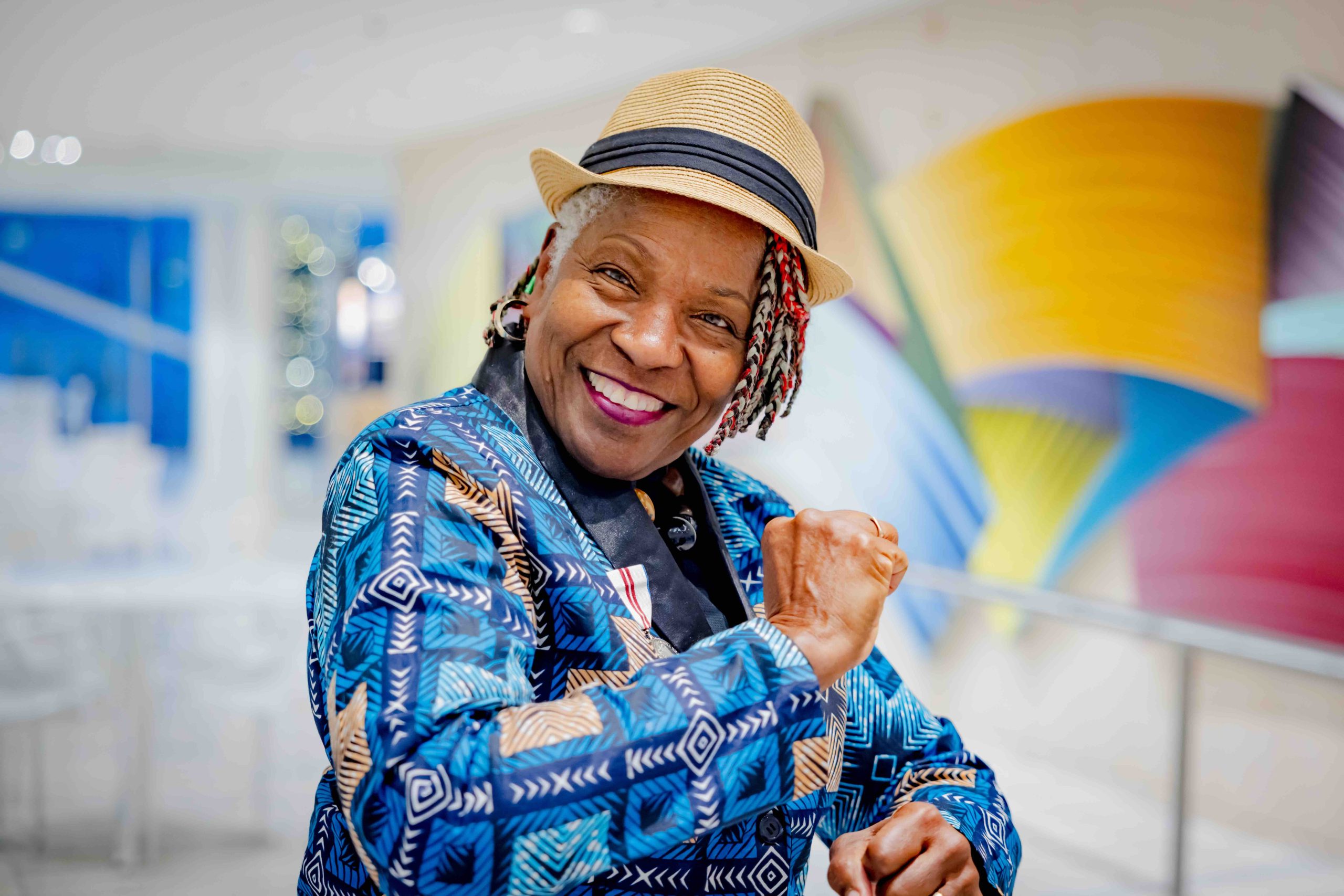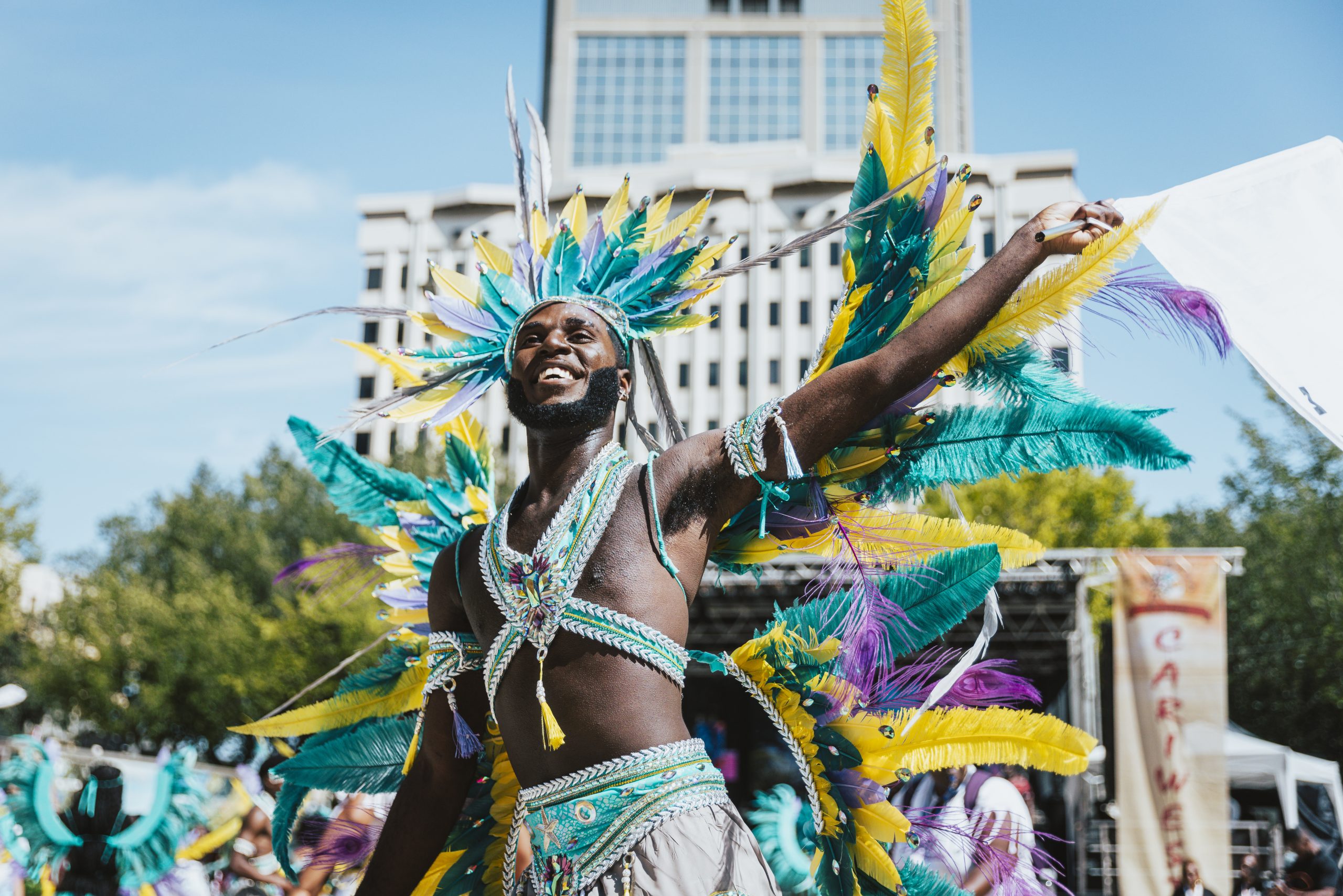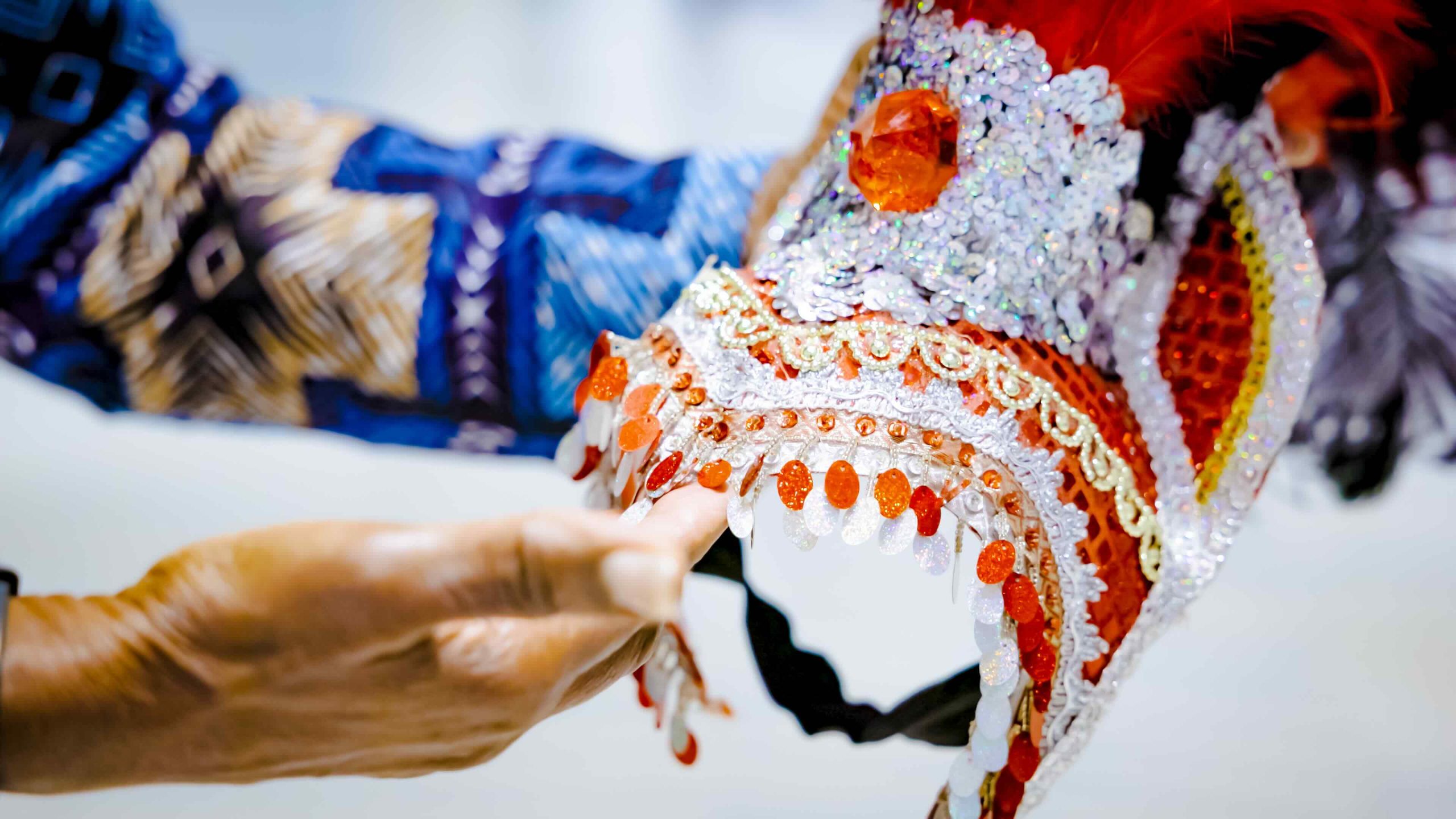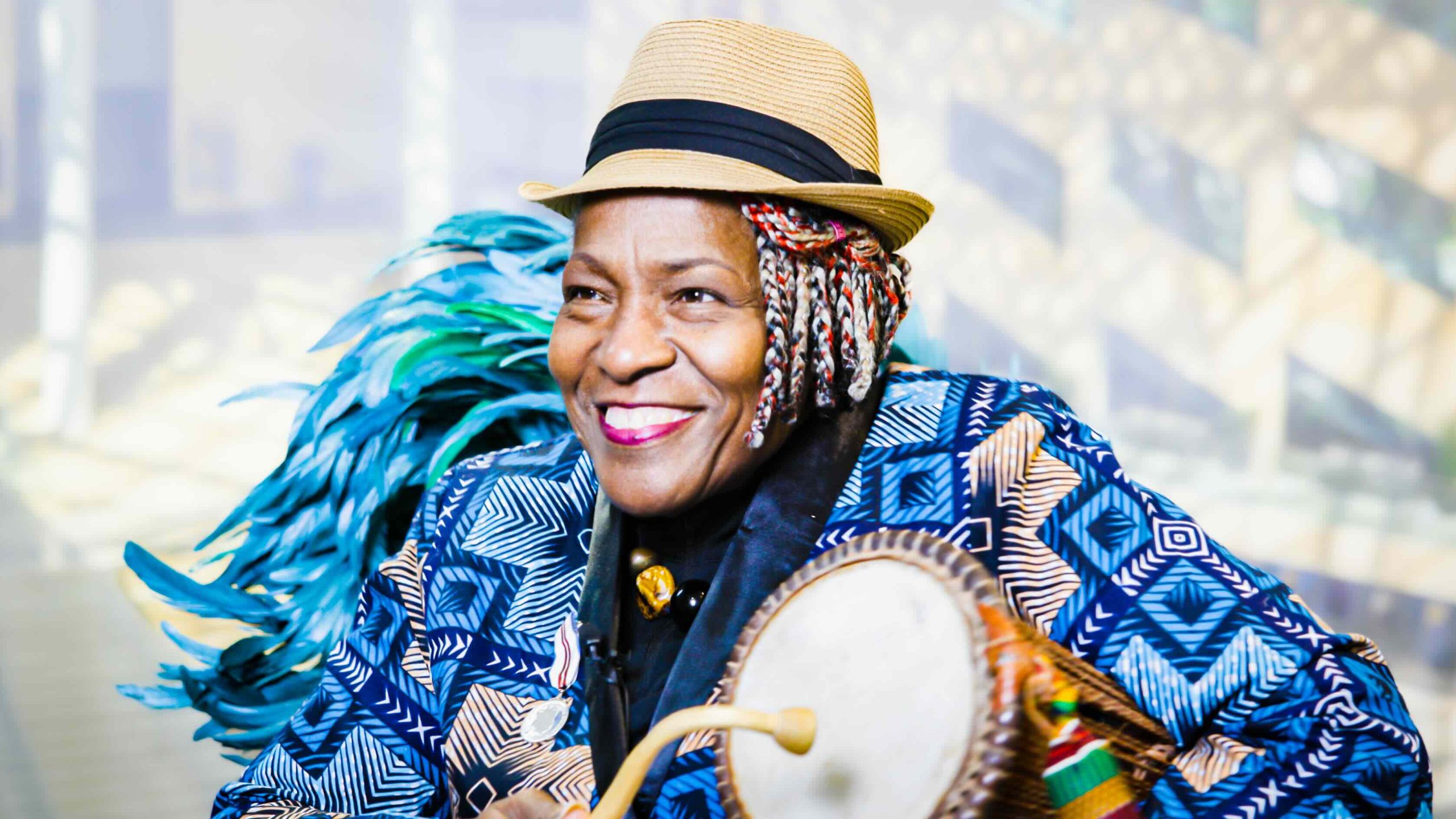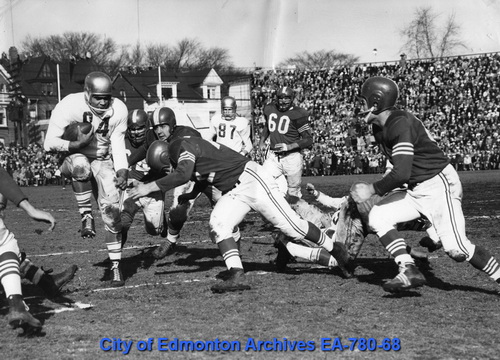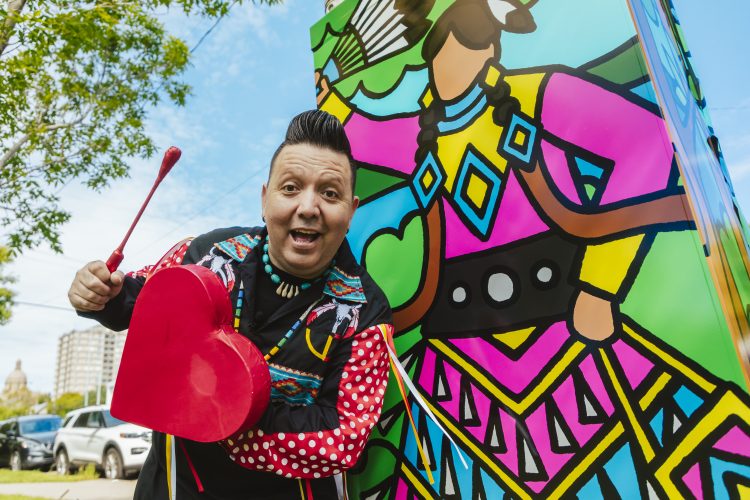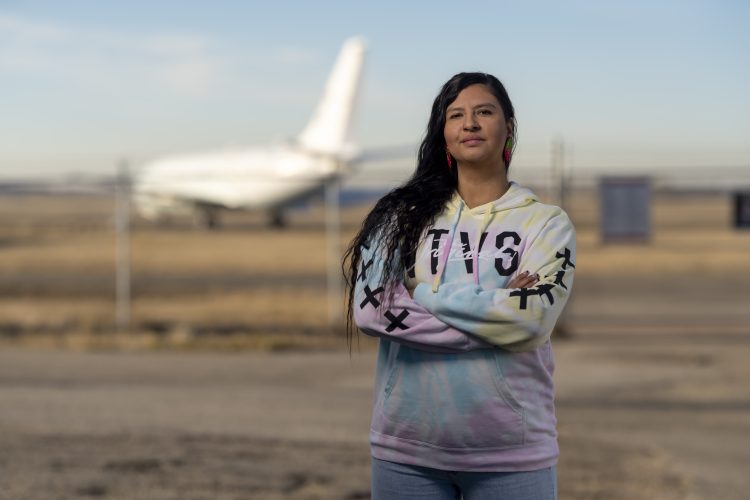“Man, if you start me on Edmonton,” smiles Donna Coombs-Montrose. “I just love this place.”
As the City of Edmonton’s first Black Historian Laureate, she gets to talk a lot about Edmonton—and the stories of the people who shaped the city. People like football star Johnny Bright, who won three Grey Cups with the Edmonton Elks. Or Hatti Melton, the owner of Hatti’s Harlem Chicken Inn, a restaurant where the Black community came together and flourished in the 1940s, ‘50s and ‘60s.
“History can be the living experience of how we have thrived in this space and what Edmonton has meant to us as people of colour,” says Coombs-Montrose.

